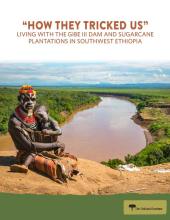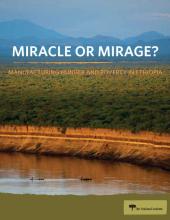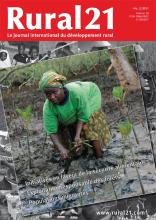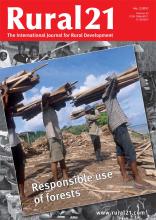Land Library
Welcome to the Land Portal Library. Explore our vast collection of open-access resources (over 74,000) including reports, journal articles, research papers, peer-reviewed publications, legal documents, videos and much more.
/ library resources
Showing items 1 through 9 of 15.How They Tricked Us: Living with the Gibe III Dam and Sugarcane Plantations in Southwest Ethiopia, reveals the dire situation faced by the Indigenous in Ethiopia's Lower Omo Valley and calls for urgent action by the government.
As months of protest and civil unrest hurl Ethiopia into a severe political crisis, a new report from the Oakland Institute debunks the myth that the country is the new “African Lion.” Miracle or Mirage?
As months of protest and civil unrest hurl Ethiopia into a severe political crisis, a new report from the Oakland Institute debunks the myth that the country is the new “African Lion.” Mira
Over the past six years, the Oakland Institute has been at the forefront of exposing the social, economic, and environmental impacts of foreign land grabs in Ethiopia.
ELD is a joint initiative of Germany, the European Commission and the United Nations Convention to Combat Desertification (UNCCD). ELD offers a strong platform for raising public awareness of land degradation and advocating sustainable land-use strategies.
Soils around the world are degrading rapidly, reducing ecosystem diversity and some important functions, threatening food and other human securities, and increasing vulnerability to climate change. This is a vicious cycle created by and leading to further unsustainable land-use practices.
Les populations vivant aux alentours d’aires protégées doivent développer de nouveaux moyens de subsistance pour assurer leur survie. Les populations riveraines des forêts dépendent souvent de l’utilisation des produits et services que leur offrent les ressources naturelles.
The Congo Basin Forest Partnership aims to reconcile forest conservation with forest use. This article explains what a “policy network” of this sort can achieve and where its limits lie.
In rural areas of many developing countries fuelwood constitutes the only energy source – often with negative impacts on humans and the environment. Wise management and modern technology can guarantee a sustainable use of this valuable resource, as some examples from Latin America demonstrate.







